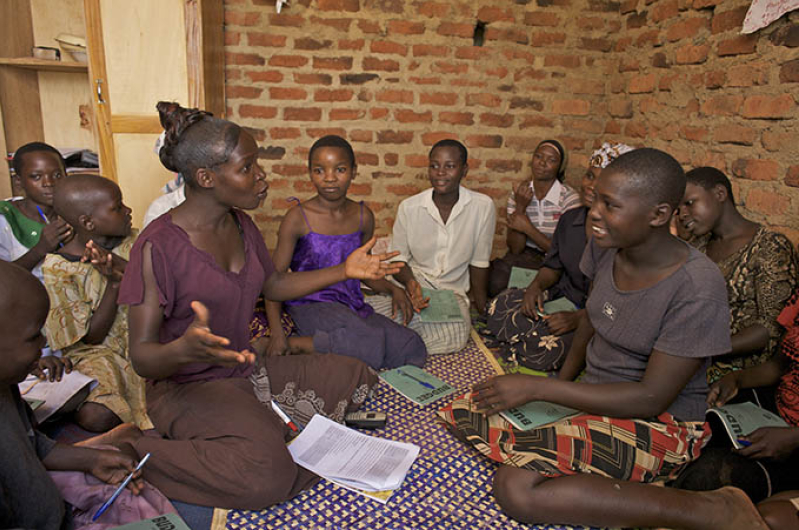
Thousands of schoolgirls in Sierra Leone have been forced to undergo humiliating and degrading public pregnancy tests since the government banned pregnant girls from attending mainstream schools and taking exams, Amnesty International said on Friday.
Girls have had their breasts and stomachs felt by teachers and nurses in front of their peers and been forced to take urine tests, which has discouraged many girls from going to school, whether they are pregnant or not, according to the rights group.
A ban on pregnant girls attending school has informally existed for a decade, but it was declared a government policy in April, when schools re-opened in the wake of the Ebola outbreak.
"This humiliating and degrading treatment has led to girls taking health risks to sit exams, such as strapping down their stomachs and breasts," Amnesty International West Africa researcher Sabrina Mahtani told the Thomson Reuters Foundation.
"Pregnant girls are being blamed and shamed... as Sierra Leone moves forward from the devastating Ebola crisis, it is vital that these girls are not left behind," Mahtani said.
Sexual violence and abusive relationships were rife in Sierra Leone during the Ebola outbreak, and fueled a spike in teenage pregnancies, Amnesty said in its report "Shamed and blamed: Pregnant girls' rights at risk in Sierra Leone".
The epidemic hindered access to services including abortion, emergency contraception and post-rape counseling, while the closure of schools for almost a year left many girls particularly vulnerable to violence, the rights group said.
"It is not right. During Ebola, their parents did not have money so many girls had to go to men," one girl told Amnesty.
ENCOURAGING PREGNANCIES?
Even before Ebola broke out in December 2013, Sierra Leone had one of the highest teenage pregnancy rates in the world. One in four girls between the ages of 15 and 19 had children or were pregnant, a government health survey from 2013 found.
Preliminary estimates from the United Nations Population Fund (UNFPA) put the number of teenage girls who became pregnant in Sierra Leone at the height of the Ebola outbreak at more than 14,300.
After the ban was imposed earlier this year, The Ministry of Education said allowing pregnant girls to go to school would undermine their ability to concentrate and participate in class, expose them to ridicule and encourage others to become pregnant.
The government announced in May an alternative "bridging" education system allowing pregnant girls to go school, but at different premises and times to their peers, which could lead to further stigmatization and marginalization, Amnesty said.
Only six in 10 girls between the ages of 15 and 24 in Sierra Leone are literate, compared with three-quarters of boys in that age range, figures from the 2013 government health survey show.
"Education is a right and not something for governments to arbitrarily take away as a punishment," Mahtani said.
"Pregnant girls are being denied key chances to move forward with their lives, and to ensure early pregnancy does not become the event that determines the rest of their lives."
Several organizations including UNICEF, the UK Department for International Development and UNFPA are helping girls to continue their education after giving birth, and give counseling and access to maternal and neonatal health services.
Maternal death rates in Sierra Leone halved between 1990 and 2013, yet it still has one of the highest rates in the world - more than one in 100 women dies in childbirth - according to the World Health Organization (WHO).





![[Exclusive Interview] A revelation within the brink of life and death — Meg Leung’s mission in Christian art](https://www.gospelherald.com/media/cache/thumbnail/7/21/72163sp_273w_150h_1x_1y.jpg)

